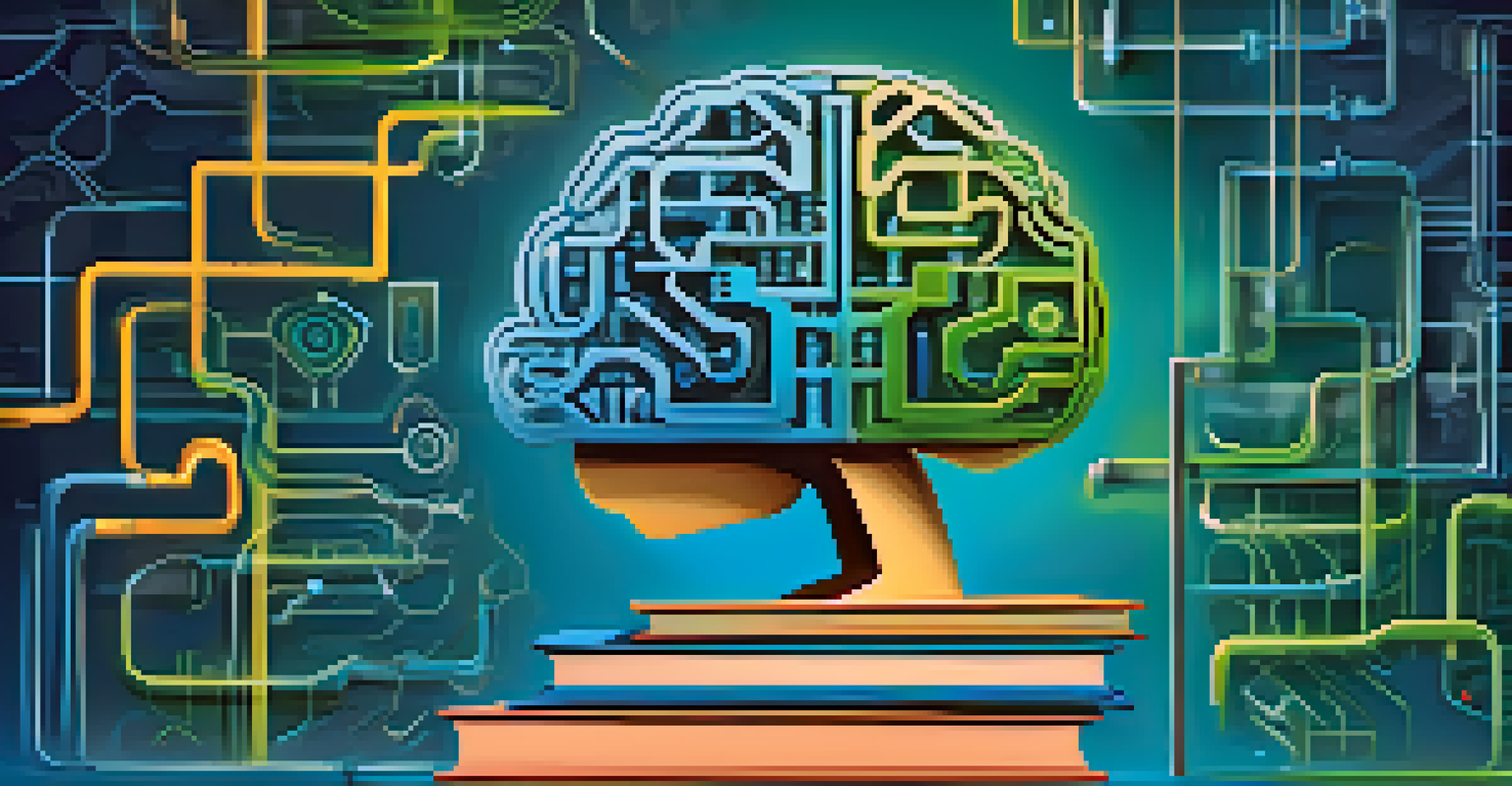The Role of Artificial Intelligence in Personalizing LMS Learning Paths

Understanding Learning Management Systems (LMS)
Learning Management Systems (LMS) are digital platforms that help educators manage, deliver, and track learning content. They play a crucial role in online education by providing a structured environment for both instructors and students.
Personalization is not just a trend; it is the future of education, allowing every learner to thrive in their own unique way.
An LMS allows for the creation, distribution, and assessment of educational courses. By utilizing these systems, institutions can streamline their teaching processes and enhance the learning experience.
As education technology evolves, the integration of artificial intelligence into LMS is becoming increasingly vital. This integration aims to personalize learning pathways, making education more effective and tailored to individual needs.
The Power of Personalization in Learning
Personalization in learning refers to tailoring educational experiences to meet the unique needs and preferences of each learner. This approach can significantly enhance engagement and retention rates among students.

When learners feel that the material is relevant to them, they are more likely to stay motivated and succeed. Personalization can involve adjusting content, pacing, and assessment methods to fit individual learning styles.
Personalization Enhances Learning
Tailoring educational experiences to individual needs significantly boosts student engagement and success.
Artificial intelligence plays a pivotal role in achieving this level of personalization. By analyzing data on student interactions and performance, AI can suggest customized learning paths that cater to each learner's strengths and weaknesses.
How AI Analyzes Learning Data
AI utilizes algorithms to process vast amounts of data generated within an LMS. This data includes student interactions, assessments, and feedback, which are invaluable for understanding learning behaviors.
The greatest benefit of technology is its ability to make learning more accessible and tailored to individual needs.
Through machine learning, AI can identify patterns that indicate how students learn best. For example, if a student excels with visual aids, the AI can recommend more video or infographic content to enhance their learning experience.
This data-driven approach allows educators to make informed decisions about course content and structure, ensuring that the learning experience is both relevant and effective for each student.
Creating Adaptive Learning Paths with AI
Adaptive learning paths are personalized routes that change based on a student's progress and understanding. AI technology facilitates the creation of these dynamic pathways by constantly assessing learner performance.
For instance, if a student struggles with a particular topic, the LMS can adjust their learning path to include additional resources and practice opportunities. This ensures that students master concepts before moving on.
AI Drives Adaptive Learning Paths
AI technology creates personalized learning routes that adjust based on each student's progress and understanding.
The adaptability of AI-driven learning paths not only promotes a deeper understanding but also fosters a sense of accomplishment as students progress at their own pace.
Enhancing Engagement Through Gamification
Gamification is the incorporation of game-like elements into educational content to boost engagement. AI can personalize gamified experiences by tailoring challenges and rewards to individual student preferences.
For example, if a student enjoys competitive environments, the LMS might present them with leaderboards or achievement badges. On the other hand, students who prefer collaboration might be grouped for team challenges.
By aligning gamified elements with individual interests, AI helps maintain motivation and encourages continuous learning, making education feel more enjoyable and less daunting.
Real-Time Feedback and Support for Learners
One of the most significant advantages of AI in LMS is its ability to provide real-time feedback. This immediate response helps students understand their progress and areas needing improvement without delay.
For instance, if a student submits an assignment, AI can quickly evaluate it and offer constructive feedback. This not only aids in learning but also empowers students to take ownership of their educational journey.
Real-Time Feedback Supports Growth
The ability of AI to provide immediate feedback empowers students to take control of their learning journey.
Additionally, AI can suggest supplementary materials or exercises based on the feedback provided, ensuring that learners receive the support they need precisely when they need it.
Challenges and Considerations in AI Implementation
While the benefits of AI in personalizing LMS learning paths are substantial, there are challenges to consider. Issues such as data privacy and the potential for bias in algorithms must be addressed to maintain trust and fairness.
Educators and institutions need to be vigilant about how data is collected and used. Transparency in AI algorithms is essential to ensure that all students receive equitable educational opportunities.

Furthermore, continuous training for educators on AI tools is crucial. Understanding how to interpret AI insights and apply them effectively in the classroom will maximize the potential of these technologies.
The Future of AI in Learning Management Systems
The future of AI in LMS looks promising, with potential advancements that could further enhance personalized learning experiences. As technology evolves, we can expect even smarter algorithms that adapt more seamlessly to individual learner needs.
Emerging technologies like natural language processing and predictive analytics will likely play significant roles in shaping the future of education. These innovations could lead to more intuitive learning environments that anticipate student needs.
Ultimately, the goal is to create a learning ecosystem where every student can thrive. By harnessing the power of AI, LMS can empower learners to take charge of their education in ways that were once unimaginable.